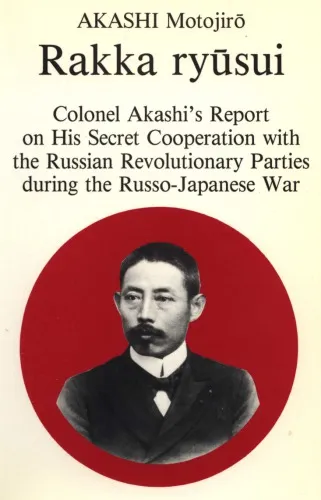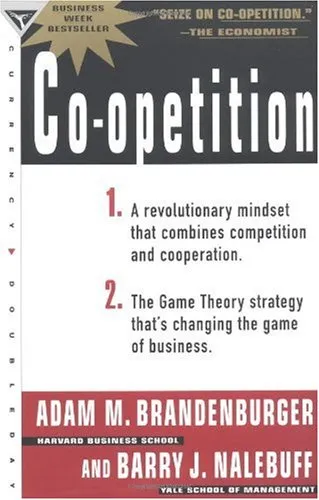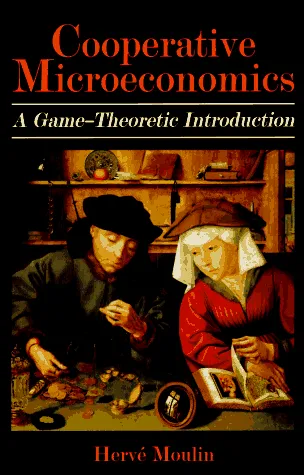Rakka ryusui: Colonel Akashi's report on his secret cooperation with the Russian revolutionary parties during the Russo-Japanese War (Studia historica)
4.9
Reviews from our users

You Can Ask your questions from this book's AI after Login
Each download or ask from book AI costs 2 points. To earn more free points, please visit the Points Guide Page and complete some valuable actions.Related Refrences:
Introduction to 'Rakka ryusui: Colonel Akashi's Report'
The book 'Rakka ryusui: Colonel Akashi's report on his secret cooperation with the Russian revolutionary parties during the Russo-Japanese War (Studia historica)' offers a compelling narrative of espionage, diplomacy, and revolutionary fervor. Colonel Motojiro Akashi's memoir provides readers with a rare glimpse into the clandestine operations undertaken during a pivotal moment in history. By unraveling Akashi's accounts, this work sheds light on the intricate web of alliances and betrayals that characterized the early 20th-century geopolitical landscape.
Detailed Summary
In 'Rakka ryusui', Colonel Akashi narrates his strategic involvement in fomenting unrest within the Russian Empire during the Russo-Japanese War (1904-1905). The narrative begins with the historical backdrop of escalating tensions between Japan and Russia over territorial ambitions in East Asia. As the conflict intensifies, Akashi is tasked with liaising with Russian revolutionaries, aiming to destabilize the Tsarist regime from within.
The book intricately details Akashi's covert operations: meetings with revolutionary factions, the exchange of intelligence, and financial support for insurrectionist activities. Each chapter delves into the complexities of aligning Japanese military goals with the revolutionary zeal of Russian dissidents. Akashi's memoir encapsulates a period where the line between friend and foe blurred, driven by the shared objective of undermining a common adversary.
Key Takeaways
- Understanding Geopolitical Intrigue: The narrative highlights how nations leverage internal dissent for strategic gains, a tactic prevalent even today.
- Role of Intelligence in Warfare: Akashi's experiences underscore the profound impact intelligence operations have on military outcomes.
- Cultural and Political Exchanges: The interactions between Japanese officials and Russian revolutionaries reveal the cultural exchanges that occur even amidst conflict.
Famous Quotes from the Book
"A nation's strength lies not just in its armies, but in its ability to exploit the fissures in its rival's armor."
"Revolution, like war, is a fluid force; it knows no boundaries and obeys no masters."
"Our endeavors were not merely acts of sabotage but were seeds of change sown in the fertile grounds of discontent."
Why This Book Matters
'Rakka ryusui' is more than a historical recount; it serves as a cautionary tale about the complexities and moral ambiguities of war. Colonel Akashi's account is invaluable for historians and political analysts interested in understanding the multifaceted nature of early 20th-century geopolitics. The book is a testament to the far-reaching consequences of covert operations and the intricate dance of alliances formed in the shadows of war.
Moreover, it resonates with contemporary audiences by illustrating the enduring nature of espionage and political intrigue in international relations. As such, it provides timeless insights into the dynamics of global power struggles and the perennial quest for dominance that characters global politics.
Free Direct Download
You Can Download this book after Login
Accessing books through legal platforms and public libraries not only supports the rights of authors and publishers but also contributes to the sustainability of reading culture. Before downloading, please take a moment to consider these options.
Find this book on other platforms:
WorldCat helps you find books in libraries worldwide.
See ratings, reviews, and discussions on Goodreads.
Find and buy rare or used books on AbeBooks.
1287
بازدید4.9
امتیاز0
نظر98%
رضایتReviews:
4.9
Based on 0 users review
Questions & Answers
Ask questions about this book or help others by answering
No questions yet. Be the first to ask!













